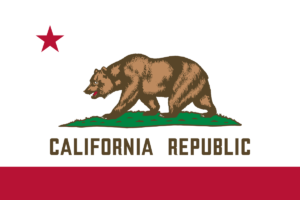California Aiming to Improve the VCM

24 October 2023 | A primary point of contention within the voluntary carbon market (VCM) centers on its transparency, or the lack thereof. Greenwashing and transparency issues permeate multiple facets of the VCM, spanning the disclosure of base-line calculation methodologies used, the credibility of offset projects, the availability of project performance data, transaction visibility, pricing, and numerous others.
This article first appeared in the Gordian Knot Strategies “Sliced Newsletter“
Part of the transparency problem is that companies who voluntarily purchase carbon credits have previously not been required to disclose their purchases.
As of this month, California has initiated measures aimed at addressing that exact detail with the goals of enhancing transparency and combatting greenwashing.
On October 7, California Governor Gavin Newsom approved Assembly Bill (AB) Number 1305. The bill – the Voluntary Carbon Market Disclosures Business Regulation Act (VCMDA) – mandates VCM disclosures. It was written by Assemblymember Jesse Gabriel and co-written by State Senators Lena Gonzalez and Monique Limón.
The new law impacts entities inside the state of California that fall into the following categories:
- Entities marketing or selling carbon offsets (Section 44475)
- Entities buying or using carbon offsets and making net-zero or emission reduction claims (Section 44475.1)
- Entities making net-zero or emission reduction claims (Section 44475.2)
All entities must now provide critical information on their websites, such as details about offset projects (e.g., locations, timelines, protocols, etc.), credit calculation methods, and data for independent verification of emission reduction estimates. The full list of information that must be listed on the entity’s website can be found in Section 44475 here.
It is important to note that these disclosure requirements do not affect entities that:
- Are not based in or do not operate within California
- Do not purchase or use carbon offsets within the state
- Do not make net-zero or emission reduction claims within the state
For context on the scale of activity within the state, the Berkley Carbon Trading Project, as of May 2023, lists 167 carbon offset generating projects in California across the voluntary registries American Carbon Registry (ACR), Climate Action Reserve (CAR), and Verra (VCS).
For anyone who has tried to explore a carbon registry in search of details about credit purchasers and their associated transactions, they often encounter limited information. ACR, for example, which lists approximately 15 Californian project developers and 40 Californian projects (at various stages of development), does keep tabs on the retirement of offsets. However, it does not require offset entities to reveal their identities. As a result, it’s not unusual to come across entities listed under generic identifiers like “Company 974” or “Company 786.”
So, the 15 Californian project developers will now be obligated to provide the essential details on their websites specified by AB 1305. And should an entity like “Company 974” operate within California or purchase credits from a Californian project and assert a reduction in their greenhouse gas (GHG) emissions as a result, it is also required to publicly disclose project-related information.
The law, which goes into effect January 1, 2024, carries a hefty violation fee.
Violators can be charged a penalty of up to $2,500 per day for each day of non-compliance or inaccurate information on their website, not exceeding a total of $500,000. This penalty can be enforced through legal action by the Attorney General or local authorities in California. Disclosures must be updated on the entity’s website at least once a year.
It’s worth mentioning that AB 1305 is in addition to other significant California bills recently signed into law by Governor Newsom. Just this month, he stamped his name on Senate Bill-253 and Senate Bill-261.
California’s Senate Bill (SB)-253 mandates regulators to establish disclosure rules by 2025 for companies with annual revenues exceeding $1 billion, impacting approximately 5,300 corporations, including major players like Apple, Chevron, and Wells Fargo. Starting in 2026, these companies will need to publicly disclose their operational and electricity-related carbon emissions. By 2027, they must also report “scope 3” emissions, including those from their supply chains and customers.
SB-261, will extend these obligations to businesses with over $500 million in yearly revenue, starting in 2026.
California is genuinely stepping up its role. Collectively, these measures hold the potential to substantially enhance aspects of transparency across the VCM. Given California’s frequent position as a trailblazer in advocating policy and regulatory reforms, it’s probable that its initiatives will influence and extend to other states, regions, and countries.
Perhaps Governor Newsom heard our recent call for a global climate finance hero?
Please see our Reprint Guidelines for details on republishing our articles.

